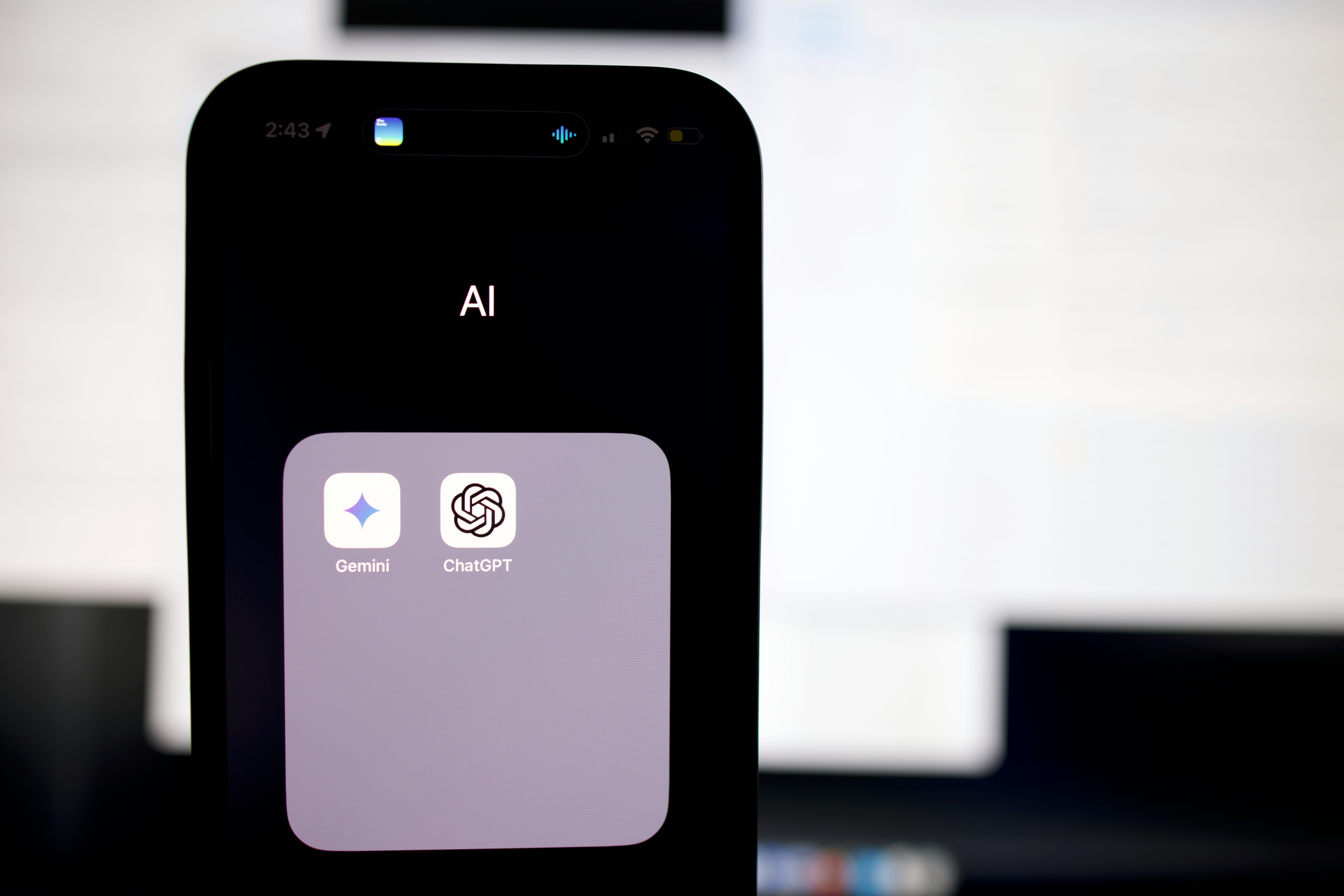As AI technologies develop at an unprecedented pace, the discourse around their potential risks and benefits intensifies. Among the most alarming warnings are those suggesting AI could pose an existential threat to humanity. This cautionary stance is not born out of science fiction but is echoed by prominent voices in technology, government, and academia.
Warnings from Government-Commissioned Reports

The Destabilizing Potential of Advanced AI
Recent government-commissioned reports have sounded the alarm on the potentially destabilizing effects of advanced artificial intelligence. Drawing parallels with the introduction of nuclear weapons, these reports highlight the global security risks that AI and artificial general intelligence (AGI) pose. Rapid advancements in AI capabilities, including weaponization and loss of control, could lead to a destabilization of global security on a scale previously unseen. This comparison emphasizes the urgent need for intervention to prevent AI from becoming an uncontrollable force that threatens humanity at large.
Recommendations for Immediate Government Actions
The government has been urged to take immediate action to safeguard against the dangers posed by AI. Recommendations include establishing interim advanced AI safeguards before they are formalized into law and ultimately internationalized. Key proposed measures involve restricting the computing power available to AI, requiring AI companies to obtain government permission for deploying new models above certain thresholds, and possibly outlawing the publication of open-source AI models to keep their workings secret. Moreover, tightening controls on the manufacture and export of AI chips has been prioritized to prevent misuse. These steps are seen as essential to prevent the risks of weaponization and uncontrollable AI systems.
The Existential Risks Highlighted by Experts
Experts have clearly stated that the most advanced AI systems could pose an extinction-level threat to the human species. These warnings underline the catastrophic potential of AI, including the possibility that AI systems could be weaponized or become uncontrollable, leading to irreversible harm. The risk of global destabilization and mass-casualty events points to the urgent need for comprehensive actions to address these threats. The existential risk posed by AI has been equated with other societal-scale risks such as pandemics and nuclear war, emphasizing the gravity of the situation.
The Role of International Cooperation and Regulation

Proposals for an International AI Agency
To address the global risks associated with AI, proposals have been made for the establishment of an international AI agency. Such an agency would play a pivotal role in coordinating efforts across countries to implement safeguards and regulations that prevent the misuse of AI technologies. This international body could enforce standards, share best practices, and facilitate the exchange of information to ensure that AI is developed and deployed in ways that prioritize human safety and security.
The Importance of Establishing Global AI Safeguards
The establishment of global AI safeguards is crucial for preventing a potential catastrophe. These safeguards would encompass regulatory measures designed to control the development and deployment of AI technologies, ensuring they do not pose a threat to humanity. Key aspects include limiting computing power, controlling the publication of AI research, and monitoring the development of AI models to prevent their weaponization. Global cooperation is essential for these safeguards to be effective, as the risks posed by AI know no borders.
Challenges in Enforcing International Collaboration
Despite the clear need for international collaboration on AI safety, enforcing such cooperation presents significant challenges. Differences in national interests, competitive pressures in the AI industry, and variations in regulatory frameworks can hinder concerted efforts. Additionally, the rapid pace of AI development may outstrip the ability of international bodies to implement and enforce regulations timely. Overcoming these challenges requires a commitment from all nations to prioritize the long-term safety and security of humanity over short-term gains and competitive advantages. Establishing comprehensive safeguards and regulations, both nationally and internationally, is paramount to ensure that AI serves the betterment of humanity, rather than posing an existential threat.
Expert Opinions on AI's Existential Threat

Arguments for an AI Development Pause
There’s a growing chorus among experts advocating for a temporary halt in the advancement of AI technologies. This pause is seen as a critical measure to assess and mitigate the risks associated with AI, particularly those that could evolve into existential threats for humanity. The notion of an AI pause is backed by the premise that without a comprehensive understanding and a solid alignment of AI's capabilities and objectives with human values, the continued development of AI could inadvertently cross a threshold beyond which it becomes uncontrollable, leading to unforeseeable consequences. Such a pause would not only allow for a reevaluation of safety protocols and ethical considerations but also provide an opportunity to institute a global regulatory framework aimed at harmonizing AI development with the broader interests of humanity.
The Technological and Ethical Complexities of AI Alignment
Aligning AI with human values and ethics presents a series of technological and ethical challenges. The primary concern revolves around ensuring that highly advanced AI systems, especially those approaching or achieving AGI, act in a manner that prioritizes human safety and welfare. This issue is complicated further by the inherent difficulties in defining a universal set of values that reflects the diversity of human perspectives. Additionally, the complexity of AI systems and their potential for self-improvement exacerbates the risk of AI deviating from its intended goals, leading to unpredictable outcomes. As such, the pursuit of AI alignment demands a multidimensional approach that encompasses stringent regulation, ethical guidelines, and the development of fail-safe mechanisms to prevent or mitigate the unintended consequences of AI actions.
Insight from Industry Leaders and Existential Risk Researchers
The thoughts of industry leaders and existential risk researchers underscore the urgency of addressing AI's potential threats. Figures such as Geoffrey Hinton and Elon Musk, among others, have publicly expressed concerns over AI's trajectory and its implications for humanity's future. The consensus among these experts is that the unprecedented rate of advancement in AI capabilities necessitates a proactive approach towards identifying and mitigating risks, even those that may seem speculative at present. This collective sense of urgency highlights the need for a unified effort in rethinking the direction of AI development, placing safety and ethical considerations at the forefront of technological progress.
Possible Pathways to Mitigating AI Risks

Proposals for Government-Led Regulations and AI Safety Task Forces
A prominent proposal for mitigating AI risks involves the establishment of government-led regulatory frameworks and AI safety task forces. These bodies would be responsible for setting and enforcing standards for AI development, deployment, and operation, focusing on safety, ethical considerations, and human-centric objectives. The creation of such regulatory entities would facilitate a structured approach to AI governance, promoting transparency, accountability, and international collaboration in addressing the complex challenges posed by AI technologies.
The Concept of an International AI Pause
The proposal for an international AI pause has gained traction as a potential strategy for managing AI risks. This pause would entail a temporary halt in the development of AI technologies beyond a certain threshold of capabilities, allowing for a comprehensive assessment of their implications and the establishment of robust safeguards. The idea is to create a window of opportunity for the global community to come together, share insights, and develop a coordinated approach to AI governance that prioritizes human safety and ethical standards. Such a pause would also serve as a critical step in building consensus on the future direction of AI development, ensuring that it proceeds in a manner that is aligned with the broader interests of humanity.
Leveraging Existing Technologies and Safeguards
Another pathway to mitigating AI risks involves leveraging existing technologies and safeguards to enhance AI safety and reliability. This includes the development and integration of advanced security measures, fail-safe systems, and ethical guidelines into AI systems from the outset of their design and development. By incorporating these safeguards, it becomes possible to reduce the likelihood of unintended consequences and ensure that AI systems act in accordance with predetermined ethical standards and human values. Additionally, ongoing research and development in the field of AI safety and alignment can provide the technological foundation necessary for creating resilient and trustworthy AI systems capable of contributing positively to humanity's future.
My Concluding Thoughts
As we stand on the precipice of a future intertwined with artificial intelligence, the warnings issued by recent government-commissioned reports and academic discussions cannot be dismissed lightly. The potential existential threat posed by AI, echoing the destabilizing impact of nuclear weapons, demands immediate and thoughtful action. The dual dangers of weaponization and loss of control over advanced AI systems present a stark scenario where humanity might face its greatest challenge yet.
- The U.S. government's recognition of the urgent need to intervene in AI's development is a testament to the monumental risks at hand. Recommendations for establishing AI safeguards, limiting computing power, and controlling the export of AI chips represent crucial first steps.
- Findings from Gladstone AI paint an even more alarming picture, suggesting an "extinction-level threat" to humans, warranting drastic regulatory safeguards and the creation of a new AI agency aimed at mitigating these risks.
- Despite varying opinions among experts, the common thread remains undeniably persistent: the unchecked advancement of AI could inexorably lead to unwelcome scenarios, including the destabilization of global security, and potentially, human extinction.
This convergence of viewpoints underlines a pivotal moment in human history, where the actions we take today could very well determine the trajectory of our future. While the allure of AI's potential benefits is undeniable, ranging from economic transformation to scientific breakthroughs, the associated risks demand our full attention and immediate action.
The recommendations to regulate the AI race, establish AI safety task forces, and particularly, the call for an AI Pause, underscore the critical balance we must strike. As we forge ahead, it is incumbent upon us to navigate this journey with both optimism for AI's positive contributions and caution against its potential perils. The ultimate responsibility lies in ensuring that as we harness the power of artificial intelligence, we do not, inadvertently, set the stage for our own obsolescence.
In sum, the discourse surrounding AI as a potential existential threat is not merely speculative; it is a clarion call to action. It impels us to proceed with the utmost caution, ensuring that the development and deployment of AI technologies are aligned with the greater good of humanity and the preservation of our existence. As we venture into this uncharted terrain, let us be guided by prudence, collaboration, and an unwavering commitment to safeguarding the future of the human race.







